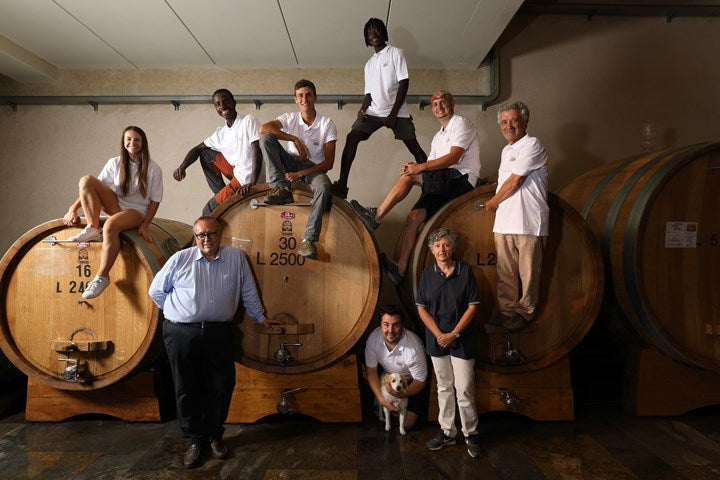The Sommelier's Box
Trediberri, Barolo Del Commune Di La Morra 2018
- Regular price
- $65.00 USD
- Regular price
-
- Sale price
- $65.00 USD
- Unit price
- per
Couldn't load pickup availability
Region: La Morra, Barolo, Piedmont, Italy
Varietal: 100% Nebbiolo
Tasting notes: You can taste the terroir in this wine. Trediberri specializes in La Morra, the village known for producing Barolo's most elegant and aromatic wines. Indeed, winemaker Federico Oberto likes to compare his wines to Chambolle Musigny, and you get it right away from your first pour: a burst of that magic red fruit/floral combination wafting upwards from the glass. Drink the wine and you encounter the crunch of serious Barolo: nervy wild fruit, a touch of licorice, a long mineral finish.
Producer: Trediberri, was founded only in 2007, which makes it surely one of the newest producers in the entire Barolo DOC. Yet the wines taste so utterly classical and traditional that you would never guess. The wines feel like they've been around for generations. The explanation is Nicolas Oberto's father, Federico, who worked for Renato Ratti from 1970 until 2005 before launching Trediberri with his son. Renato Ratti was one of the great historical figures of Piedmont wine, a true repository of Barolo wisdom and tradition. Ratti was Federico's mentor up until Ratti's untimely death in 1988. When you taste Trediberri's wines, you sense that somehow that generations-old wisdom made it into the bottle that you are drinking.
Vineyard and Winemaking: Berri is a small hamlet in the westernmost part of La Morra, located in the Langhe hills of Piemonte, close to the Tanaro river. It lies at the extreme western edge of the Barolo region. For this La Morra Barolo alcoholic fermentation takes place in concrete and lasts around 12-14 days, followed by a 4-5 day post-fermentative maceration. Total skin-juice contact is around 3 weeks. Then malolactic takes place in concrete and steel and the wine ages for around 20 months in 52-hl and 25-hl oak barrels crafted by Garbellotto. After aging, the wine rests for some months in concrete, steel and plastic, before being bottled, usually in July-August of the year before the release.
Share






